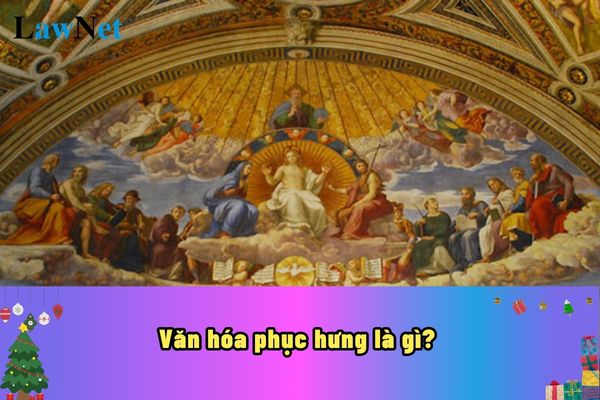What is Renaissance Culture? In Vietnam, what is the grade at which students will learn about Renaissance Culture?
What is Renaissance Culture?
Students in Vietnam can refer to the information about Renaissance Culture as follows:
|
What is Renaissance Culture? Renaissance Culture is a major cultural and artistic movement that emerged in Europe from the 14th to the 17th centuries. It marks the transition from the medieval period to the Early Modern era, bringing significant achievements in fields such as science, art, literature, and philosophy. |
*Note: The above information about Renaissance Culture is for reference only./.

What is Renaissance Culture? In Vietnam, what is the grade at which students will learn about Renaissance Culture? (Image from the Internet)
In Vietnam, what is the grade at which students will learn about Renaissance Culture?
According to Section 4 of the General education program in History and Geography at the lower secondary level issued along with Circular 32/2018/TT-BGDDT:
Content for 7th-grade History and Geography as follows
WESTERN EUROPE FROM THE 5TH CENTURY TO THE FIRST HALF OF THE 16TH CENTURY
- The formation and development of feudal policies in Western Europe
- Geographic discoveries
- Renaissance Culture
- Religious reformation
- Formation of capitalist production relations in medieval Western Europe
- Summary of the historical progress of China from the 7th century to the mid-19th century
- Major political, economic, and cultural achievements of China from the 7th century to the mid-19th century
Thus, Renaissance Culture will be taught in the 7th-grade General education program in History and Geography.
What are the 06 perspectives for developing the General education program in History and Geography in Vietnam?
According to Section 2 of the General education program in History and Geography at the lower secondary level issued along with Circular 32/2018/TT-BGDDT:
The General education program in History and Geography at the lower secondary level complies with the regulations in the overall program while emphasizing some perspectives as follows:
Perspective 1. The program aims to form and develop in students scientific thinking, viewing the world as an entity in both spatial and temporal dimensions based on fundamental knowledge and the tools for learning and researching history and geography; thereby forming and developing both specific and general competencies, especially the ability to apply knowledge and skills in practice and creativity.
Perspective 2. The program inherits and promotes the strengths of the History and Geography subjects in the current general education program and incorporates the experience of curriculum development from advanced countries. The subject content ensures to equip students with foundational, comprehensive, and scientific knowledge; tailored to the psychological and cognitive levels of students, considering the teaching conditions of Vietnamese schools.
Perspective 3. The History education content is designed linearly from prehistoric through ancient, medieval to modern and contemporary times; each period interweaves world history, regional history, and Vietnamese history. The geography education content goes from general geography to regional geography and Vietnamese geography. It focuses on selecting topics, and connecting knowledge and skills to form and develop students' competencies while valuing the scientific characteristics of history and geography.
Perspective 4. The program emphasizes the use of positive educational methods, emphasizing the use of teaching aids, and diversifying teaching and assessment methods to form and develop students' qualities and competencies.
Perspective 5. The program ensures continuity with the General education program in History and Geography at the primary level and the General education program in History and Geography at the upper secondary level; interconnection closely between classes, levels, subjects, and educational activities of the general education curriculum.
Perspective 6. The program is open, allowing flexible implementation depending on local conditions and student groups (students in difficult areas, students with special support needs, etc.).

